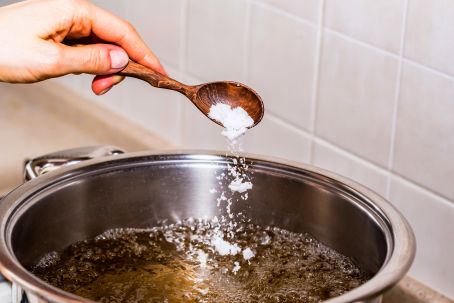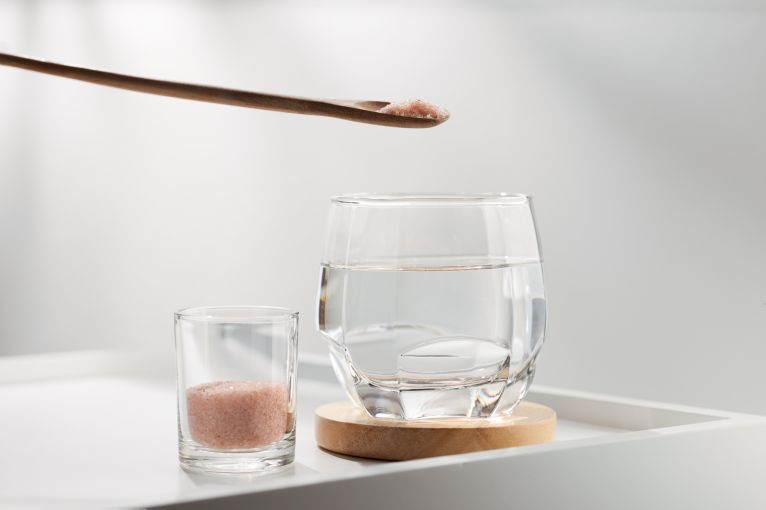Why do we need salt?
Salt is a mineral that’s used to enhance the flavor of food. This mineral is essential for all living things, especially for our body, because it’s essential for the chemical reactions in our body.
A diet with salt is important to our health, so we have a lot of salt in our foods and even on our skin, but most people don’t think about what salt does to the water. Salt has an amazing ability to bind with water molecules, so when you put salt in water, it actually binds with more water molecules than before.
When you add salt to water, it can also increase the temperature of the water. The amount of heat generated by adding salt is less than the amount of heat produced by adding another substance like a wet sponge or ice cubes, but the temperature increase of adding salt is more than when you add a wet sponge or ice cubes.
A small amount of salt can help you retain more water after a workout. But how many soluble salts we lose in exercising and how many we need to replace is still a mystery. Ultramarathoners long ago thought they needed to take salt pills to help them retain their electrolytes in order to avoid cramping, nausea, and becoming fatigued while they ran long races; however, there is no evidence that these salt pills actually help anyone.
What’s the Purpose of Adding Salt to Water?
Water and salt are both necessary for human life. Salt helps to bring out the flavor of food, while water helps to keep us hydrated. But why do we add salt to water?
To Make It Taste Better
Adding salt to water helps to make it taste better. Salt is a preservative, which means that it helps to keep food from going bad. When salt is added to water, it helps to increase the concentration of salt in the water. This makes it easier for the human palate to detect the flavor of the food.
To Increase the Water Temperature
To increase the boiling point of water, salt is added. When salt is dissolved in water, it creates a solution. A solution is a mixture of two or more substances that are in close contact with each other. The water will heat up faster and will be able to cook food more quickly.

To Adjust the pH of the Water
Salt is a common additive to water because it helps to adjust the pH of the water. The pH scale measures the acidity or alkalinity of a solution. A lower pH means that the solution is more acidic and a higher pH means that the solution is more alkaline.
To Adjust the Temperature of Water
Salt also helps to adjust the temperature of water. When you add salt to water, it creates an ionic bond between the salt and water molecules. This bond causes a change in the temperature of the water because it increases its ability to hold onto heat.
When Should You Add Salt to Water?
Some individuals like to add salt water after it has gotten a good boil. Adding salt water a little later than normally would speed up the process of making it boil faster. But it could help you prevent the salt water from sticking to certain pots and pans if you add some salt to the water before you start boiling it. Because when you add salt to water, the sodium and chloride ions in it don’t have time to interact with the metal. However, even if you add salt to your pots and pans at the wrong time, it won’t cause any significant damage to them.
If you are making a dish that calls for salt, but you are cutting down on sodium, you may think it’s okay to use salt-free water instead. Is it okay to leave out the salt? Will it ruin the recipe?
Salt is necessary in baking cookies and other baked goods, since it acts as a regulator that controls how much foam is produced when baked goods rise. If you don’t want to add salt to water while it is cooking, it might ruin the recipe. What you do when you have hot water to make rice or pasta is all about flavor. You can use plain salt to make that. Salting water before you cook something is mostly only for flavor. It has no effect on the cooking time or the shape or texture of the finished product. If your water does not need to be salty, that is fine.
It is perfectly acceptable to season your drink to prevent it from being absorbed by your system. Sodium binds to liquids in the body, keeping them in a steady state so that when you lose too much salt, you will have cramps and other symptoms.
However, excessive salt can cause problems like bloating and other unpleasant side effects. You are having excessive bloat; your period will likely become shorter and you will feel more irritated.
Where Can You Buy Salt for Water?
You will find salt for drinking water in supermarkets. When you put salt in a water softener, it will actually soften the water, but the way you use it will affect its effectiveness. Some salts are more effective than others at softening hard water, but pellet salts are better than that. Salts from rocks and other minerals may cause a buildup in a water softener, causing it to require a cleaner more often.
For cooking, you can use table salt or kosher salt. Table salt is a finer grain and is good for cooking because it doesn’t form clumps. Kosher salt is a coarser grain and is good for seasoning because it has a higher concentration of ions.
So, while adding salt to water is a common practice, there are many reasons why you might want to do so. There might also be reasons why you might want to avoid adding salt to water.


